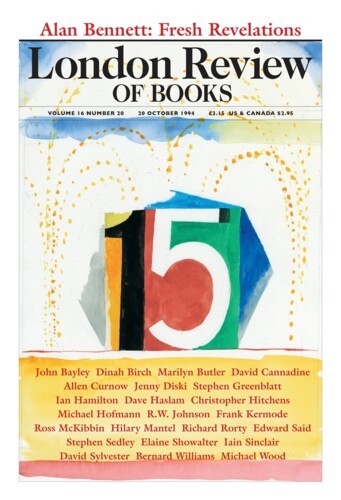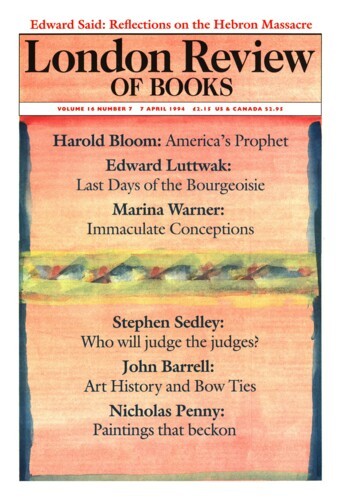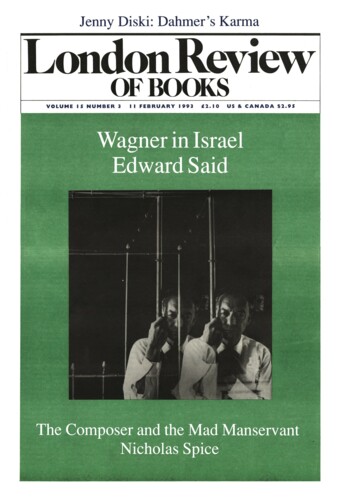Who is worse?
Edward Said, 20 October 1994
Despite the dismal events of the past year, Israel continues to be immune from criticism of its outrageous behaviour in the American ‘peace process’. This is one of the most striking aspects of the 12 months that have elapsed since the Declaration of Principles and the Gaza-Jericho agreements were signed on the White House lawn. Part of the blame rests with the PLO’s current leadership, which from the very beginning saluted Israel’s ‘courage’ in granting Palestinians the right to extremely limited self-rule. (Even that is still far from realisation.) Why the victims of Israel’s policies of dispossession, occupation and repression should thank their persecutors for a grudging admission that they ‘exist’ is difficult to understand, although the recently published memoirs of Mahmoud Abbas (Abu Mazen) provide at least one important clue. It seems that, to people like himself and Arafat, the psychological need for recognition from ‘the Zionist movement’ was so great as to override almost all other considerations – especially those that concerned the Palestinians’ real, long-term interests. The Palestinian negotiators at Oslo, insecure in their own cause, achievements and history, mistook the satisfaction of their own personal need for acknowledgment as a real political victory. But, as the Palestinian economist Burban Dajani has shown, Rabin’s one-sentence ‘recognition’ of the Palestinians recognised no Palestinian rights, but merely an organisation said to represent that people as ‘a suitable negotiating partner’. In other words, Rabin recognised the Palestinian leadership only in order then to wrest concessions from it. The Palestinian people’s losses, suffering and future were handed over to Israel to dispose of as it wished.’





